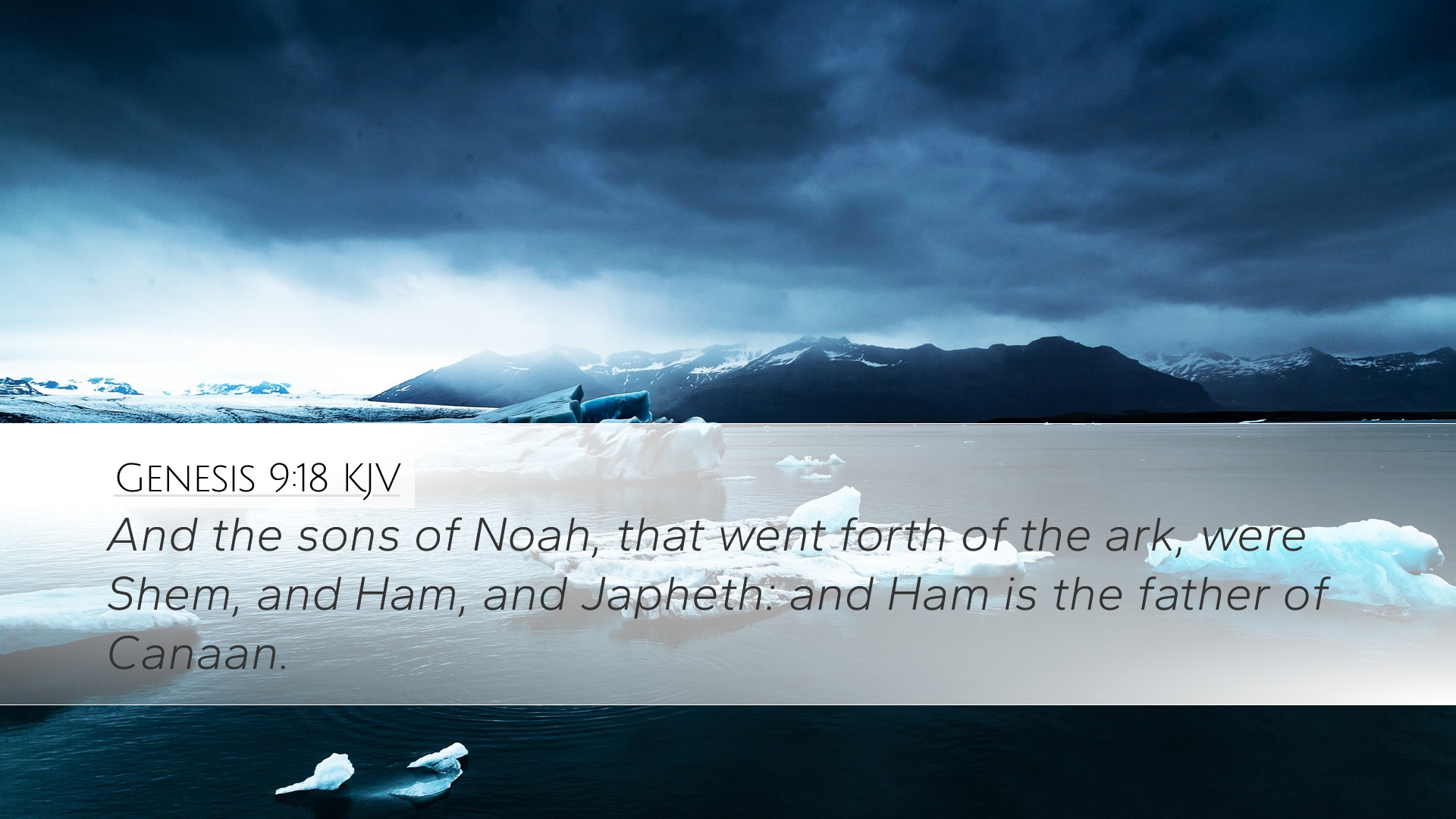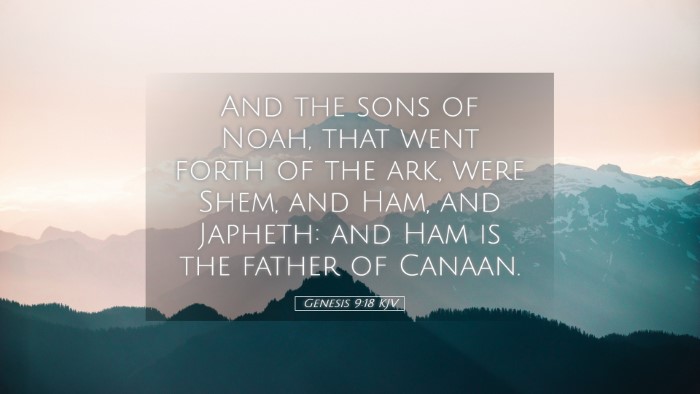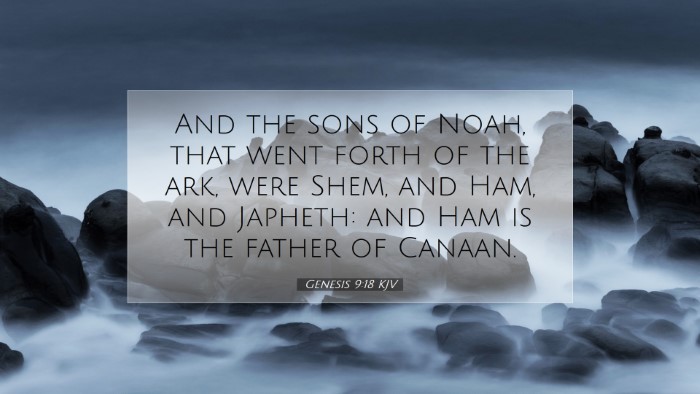Commentary on Genesis 9:18
Verse Context: Genesis 9:18 states, "And the sons of Noah, that went forth of the ark, were Shem, and Ham, and Japheth: and Ham is the father of Canaan." This verse bridges the narrative of Noah's deliverance through the flood with the subsequent covenant established by God with humanity.
Overview of Commentary
This commentary synthesizes insights from various public domain sources, notably Matthew Henry, Albert Barnes, and Adam Clarke, to provide a rich theological exploration of Genesis 9:18. The passage serves as a significant marker in the genealogical and theological history following the flood, setting the stage for important themes in the Bible.
Key Themes
- The Continuity of Humanity: The introduction of Noah’s sons signifies continuity after the judgment of the flood, emphasizing God's mercy in preserving a remnant of humanity.
- Divine Order and Structure: The specific naming of the sons illustrates the divine order through which nations and peoples would emerge, underlining God’s sovereign plan for mankind.
- Covenantal Significance: This passage lays the groundwork for understanding the unfolding of God's covenantal dealings with humanity, particularly through the descendants of Noah.
Insights and Exegesis
Matthew Henry's Perspective: Matthew Henry highlights the importance of the sons of Noah in understanding the future of humanity. He emphasizes that just as sin had spread from Adam, the righteousness of God seeks to establish a new beginning through Noah and his sons. Henry points out that Shem, Ham, and Japheth represent the diverse nations that come from Noah, each with distinct characteristics and roles in the biblical narrative.
Albert Barnes' Analysis: Albert Barnes provides a detailed examination of the names mentioned in this verse. He explains that Ham is specifically noted as the father of Canaan, signaling the audience's awareness of the eventual outcome for Canaan’s descendants. Barnes asserts that this introduction is pivotal, as it foreshadows later events in biblical history, particularly regarding Israel's interactions with the Canaanites, thus establishing a link between genealogy and divine judgment.
Adam Clarke's Comments: Adam Clarke expands upon the significance of mentioning Ham as Canaan’s father. He argues that the inclusion of this detail serves a dual purpose: it indicates the lineage of the Canaanites and serves as a historical reference for the Israelites, revealing the consequences of Ham's actions which played a significant role in their history. Clarke emphasizes that this reference is not merely genealogical but serves a theological purpose within the narrative.
Theological Implications
- The Nature of Sin: The mention of Ham and Canaan foreshadows the future moral failures and the consequences of sin within his line, which resonates with the broader biblical narrative of human depravity.
- God's Judgment and Mercy: This text also illustrates God's judgment post-flood but underscores His mercy in preserving a remnant through Noah’s lineage, a theme that recurs throughout Scripture.
- God’s Sovereignty: The specific outlining of Noah's sons reinforces God's ultimate authority over history and nations, setting the tone for the unfolding of His redemptive plan.
Conclusion
The passage in Genesis 9:18 serves as a crucial insight into the biblical narrative following the flood. By understanding the significance of Noah's sons and particularly Ham’s lineage, theologians and pastors can appreciate the profound implications this genealogical note has in the context of God’s overarching narrative of redemption and judgment. It invites reflection on themes of sin, covenant, and divine mercy, challenging believers to recognize God’s hand in the unfolding story of humanity.


